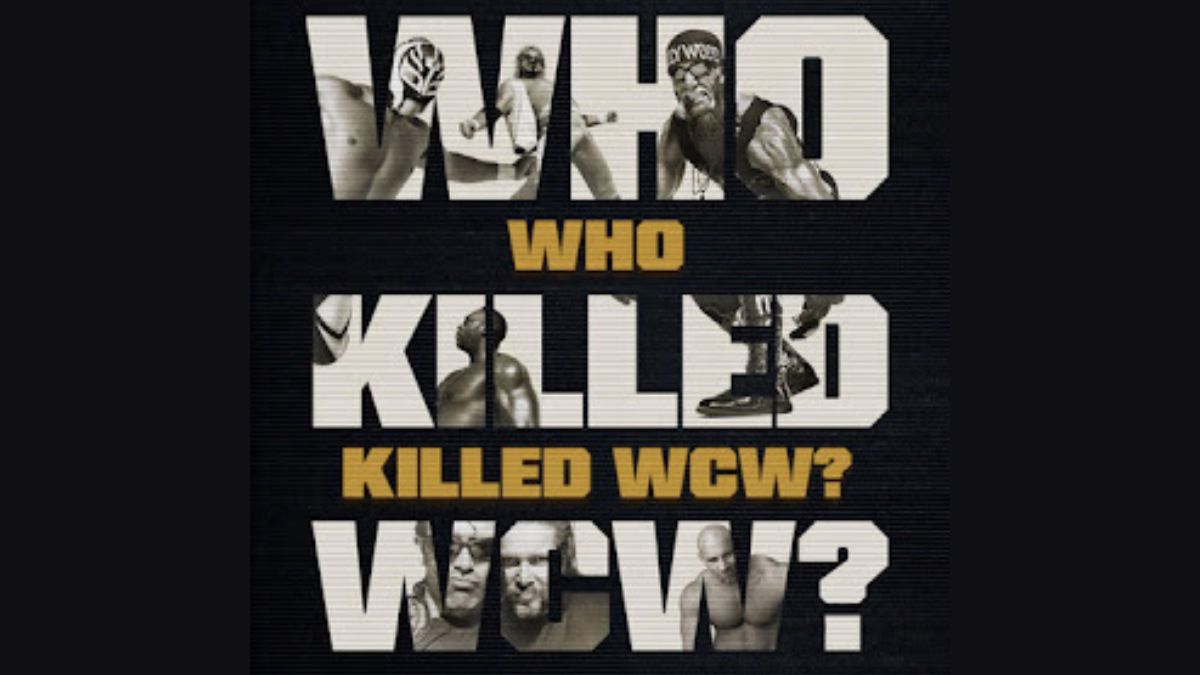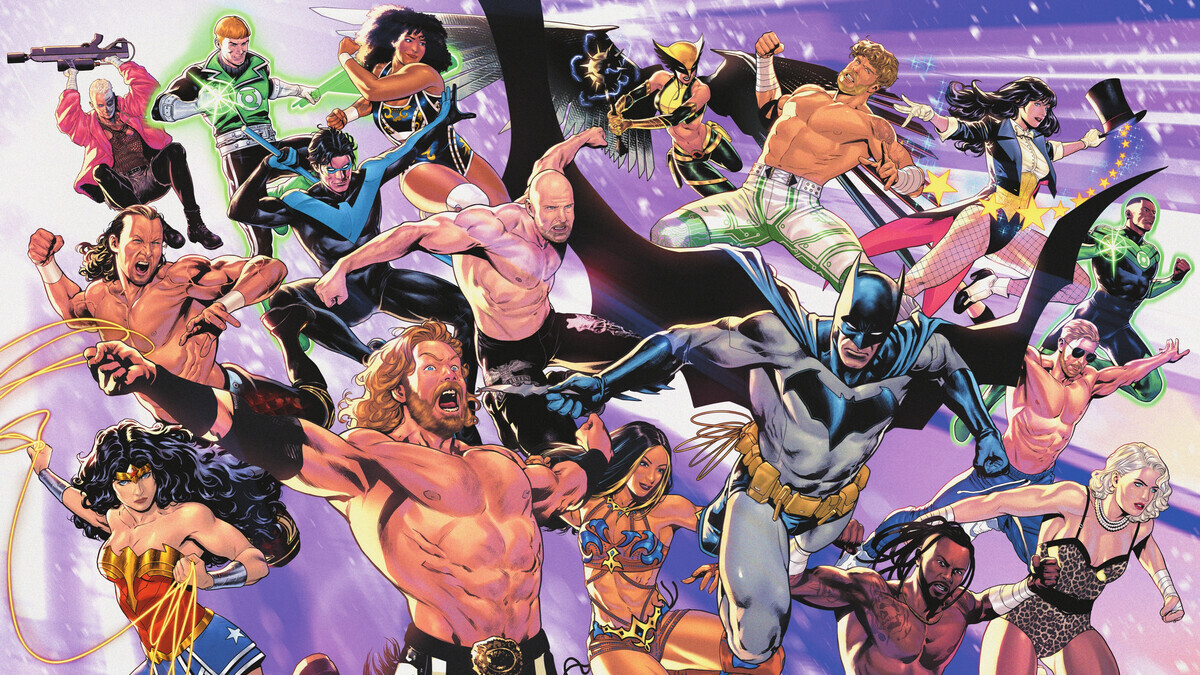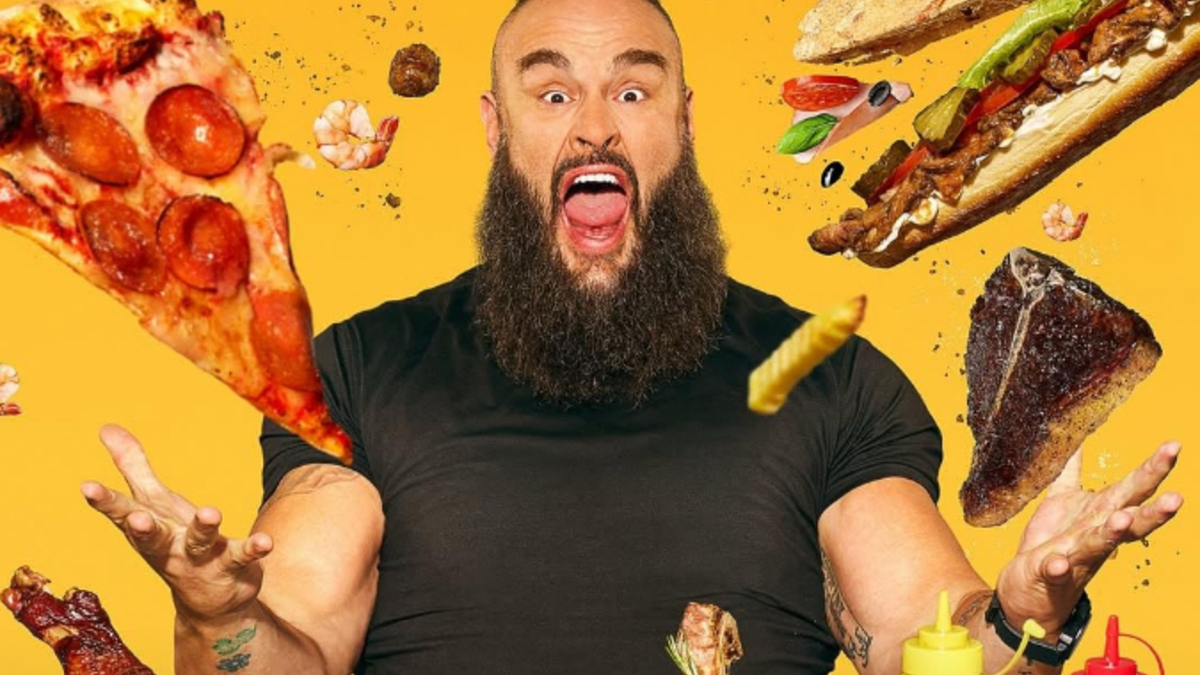‘Who Killed WCW?’ ends without a true answer
The last nail is hammered into the casket of World Championship Wrestling in the fourth and final episode of Who Killed WCW? – but the finger-pointing and second-guessing continued.
The show opened with the final episode of WCW Monday Nitro looming and the uncertainty surrounding the future of the company at an all-time high.
Footage courtesy of WCW cameraman Scott Lansing from the final Nitro was sprinkled in throughout the episode, which I thought was an excellent touch and brought you back 23 years.
Eric Bischoff is heavily featured in this episode and stated that he realized that when he returned in the year 2000, the WCW and Turner relationship was the most dysfunctional it had ever been.
The disastrous AOL/Time Warner is then discussed, with Nitro author Guy Evans pointing out that AOL, like many other Internet businesses at that time, was severely overvalued.
“If you looked at their assets, besides furniture, they had a subscription list,” said Dick Cheatem, group financial controller for Turner Sports.
Evans explained that AOL themselves realized the overvaluation and quickly sought to find a media partner to merge with. Enter Time Warner.
Teddy Turner, the son of media mogul and WCW advocate Ted Turner, admitted that his dad and many others at Time Warner suffered from a sort of generation gap related to Internet knowledge. They got caught up in making a deal with AOL and realized shortly after that it was a Ponzi scheme of sorts and didn’t bring much to the table.
Brad Siegel, former president for Turner Sports, said that AOL’s serious financial issues had major consequences and WCW quickly became collateral damage. Siegel also realized that he couldn’t fix WCW, with ratings continuing to drop and balance sheets getting more and more red.
Evans pointed out that while TV ratings were down, so were pay-per-view buyrates. WCW Uncensored 1999 went down 81 per cent in buys year-over-year for the year 2000 show. The 1999 show is also arguably where WCW goes off a creative cliff and never recovers.
WCW was reported as having losses of $62 million in 2000, but Bischoff and others believed that money was being transferred around to make WCW look even worse.
“I think there was a lot of debt from other divisions of the company that could be allocated as losses against WCW because everyone knew it would be written off as a loss,” Bischoff said.
Bischoff stated that he offered to explore finding a buyer for WCW in 2000, but Siegel refused and said Turner doesn’t sell things, we buy things.
The AOL/TW merger was finalized on Jan. 11, 2001, and AOL stock itself, like many other Internet stocks, took a huge hit. As a result, WCW and its big losses went even more into the crosshairs.
Teddy Turner added that his father got a fancy new title, but lost a lot of power in the merger. Executives didn’t want to hear from him as much and his power was greatly diminished. That loss of power was bad news for WCW, as it lost one of the few people who wanted to keep wrestling on-air.
Siegel’s opinion on selling the company quickly changed, with Bischoff receiving a phone call that he should look for buyers. Bischoff said he’d never done anything like put together a sale before, but wanted to make something work.
This portion of the show made me question Siegel. Why would he just trust Bischoff to find a buyer? Wouldn’t a talent agency or similar firm have made a better decision? Bischoff was likely not the right person to seek out a buyer.
Bischoff eventually hooks up with Fusient Media, who owned the Classic Sports Network, and had a lot of connections in media. The plan was to have Nitro run live from Las Vegas at the Hard Rock Casino in a 3,500-seat arena. They would begin with The Big Bang pay-per-view on May 6, 2001.
Turner also guaranteed the continuation of the primetime slots on Monday and Thursday in the deal. I found this point interesting, as Bischoff himself stated that Thunder was a mistake. Why did he have such a big interest in keeping the Thursday show? Thunder was a taped show in front of a dead crowd after Nitro at that point and ratings were poor.
Meanwhile, Jamie Kellner is announced as the new CEO of Turner Broadcasting on March 6, 2001. Kellner was a successful executive, but detested wrestling.
One of Kellner’s first deals was the WCW sale to Fusient. According to Bischoff, he looked at the deal, realized that wrestling would be on two days a week for at least a few years and didn’t want it.
Kellner advised WCW employees that there would be a hiatus of the program on March 16 and cancelled all programming a few days later.
Fusient backed out after the TV deal was yanked. Bischoff stated that without TV distribution, about 90 per cent of the revenue is out of the equation with the deal. The news devastated him.
Stu Snyder is introduced for the first time in the series, as a former Turner Home Entertainment EVP and was the COO of WWF in 2001 when WCW was falling apart. Snyder had spoken to Siegel prior to the merger and stated that WWF would have interest in WCW.
After the Fusient deal fell through, Snyder and the WWF swooped in and purchased WCW on March 23, 2001.
The final Nitro is revisited with talent reflecting on a very weird series of days.
Kevin Nash decided not to show up for work on the final Nitro. “Hey you guys want to be on the f***ing Titanic – nah I’m good, I’ll sit and watch it sink from my f***ing house.”
Nash apparently had no feelings about the many crew members who lost their job that night.
“Some cameramen were working there for 27 years and all of those people lost their livelihood,” said Diamond Dallas Page. “And that’s why I say f**k you Jamie Kellner.”
Neal Pruitt, a producer on Nitro, was emotional and said the trust that crew members had helped make WCW a success and that family was gone after that final show.
Bischoff said he didn’t watch the show and felt bad for the talent. Booker T and Scott Steiner’s title match is also discussed, but nothing of the final match in WCW history between Sting and Ric Flair.
Bob Ryder’s conspiracy theory about the sale of WCW is then highlighted. Ryder believed that Snyder and Siegel worked together to get WCW off the air for Turner and cancel the Fusient sale. Bischoff said he still thinks the sale has some murky details, but would not say he believed Ryder’s story entirely.
Siegel said it was purely coincidental and Snyder said he had no advance knowledge that the Fusient deal would collapse. Snyder said the simple answer is that Kellner didn’t want the show on the air and he cancelled it.
Evans rightly pointed out that everyone involved in the conspiracy would be risking a lot to achieve this goal and it’s unlikely that it would be worth that risk in this situation. Bischoff said he leans to thinking something shady occurred.
“I understand rumor and gossip,” Snyder said. “But it’s easy to sit on the sidelines and not understand the economics of the business. If there was a deal to sell for $60 million, then Turner would have made that deal.”
I thought Snyder came off very well in the episode and made a lot of sense. For as much as wrestling fans want business transactions to be like a storyline, it’s often the case that the most boring or simple explanation is what actually happened.
Siegel said he was disappointed in the final outcome of WCW and Snyder pointed out that without Ted Turner advocating, WCW was in trouble.
The entire InVasion debacle is gone over, along with the nWo run in the WWE. I do think producers should have brought up the success of the InVasion show on pay-per-view. It was proof that a WCW audience still existed, but WWE mismanaged that and ultimately drove many of them away in the years that followed.
WHO KILLED WCW? responses:
- Cheatem: Turner corporate
- Engle: Turner corporate and some of the people in the booking committees
- Pruitt: Execs in AOL Time Warner
- Konnan: Turner and top guys not giving midcard guys a chance
- Siegel: WCW killed itself, they didn’t function as a team
- Nash: Siegel (said he’s never seen someone that high up on the food chain not accept responsibility)
- DDP: Turner Sports
- Booker: Bischoff
- Bret Hart: Russo and Bischoff
- Russo: A business decision
- Goldberg: A sh*tload of people
- Evans: it was inevitable
The show closed with reflections from Bischoff on his run as the RAW general manager (but nothing from his TNA days). Nash puts Bischoff over one last time to close the show.
One person missing from the show was Kellner himself, who passed away on Friday, June 21. He would have been an excellent person to learn more from.
I do think a little bit more should have been made of the 2001 period for TV. WCW had some promising prospects and were finally trying to be more of an alternative to the WWF.
Overall I found the show to be a fun look back, with some interesting insight from some of the key players. Specifically, I enjoyed hearing from Siegel, Snyder, Cheatem and the people behind the scenes. They offered a fresh perspective after years of hearing wrestlers drone on and one and pointing fingers.
As for my opinion, I tend to side with Booker T. Bischoff was ultimately responsible for so many disastrous creative decisions that led to an extreme downturn in business. However, he also brought the company to heights it never again achieved and success that no one thought possible. Bischoff also seemed to trust the wrong talent on top and was not able to cut ties at the right time.
If WCW had been profitable or hadn’t been losing as much, maybe the show gets saved. Perhaps the bigger shame is how WWE handled WCW after. They could have had viable competition, but destroyed a fanbase and then went on to try and fail for years to create their own competition.
The legacy of WCW lives on in pop culture and for many fans that 1996-99 period is still the best wresting has ever been.
RELATED LINKS
- June 19, 2024: Bro, third ‘Who Killed WCW?’ all Russo and bad booking
- June 12, 2024: Goldberg steamrolls through second ‘Who Killed WCW?’ episode
- June 10, 2024: Ric Flair blames this trio for the death of WCW
- June 5, 2024: First part of ‘Who Killed WCW?’ pretty familiar




